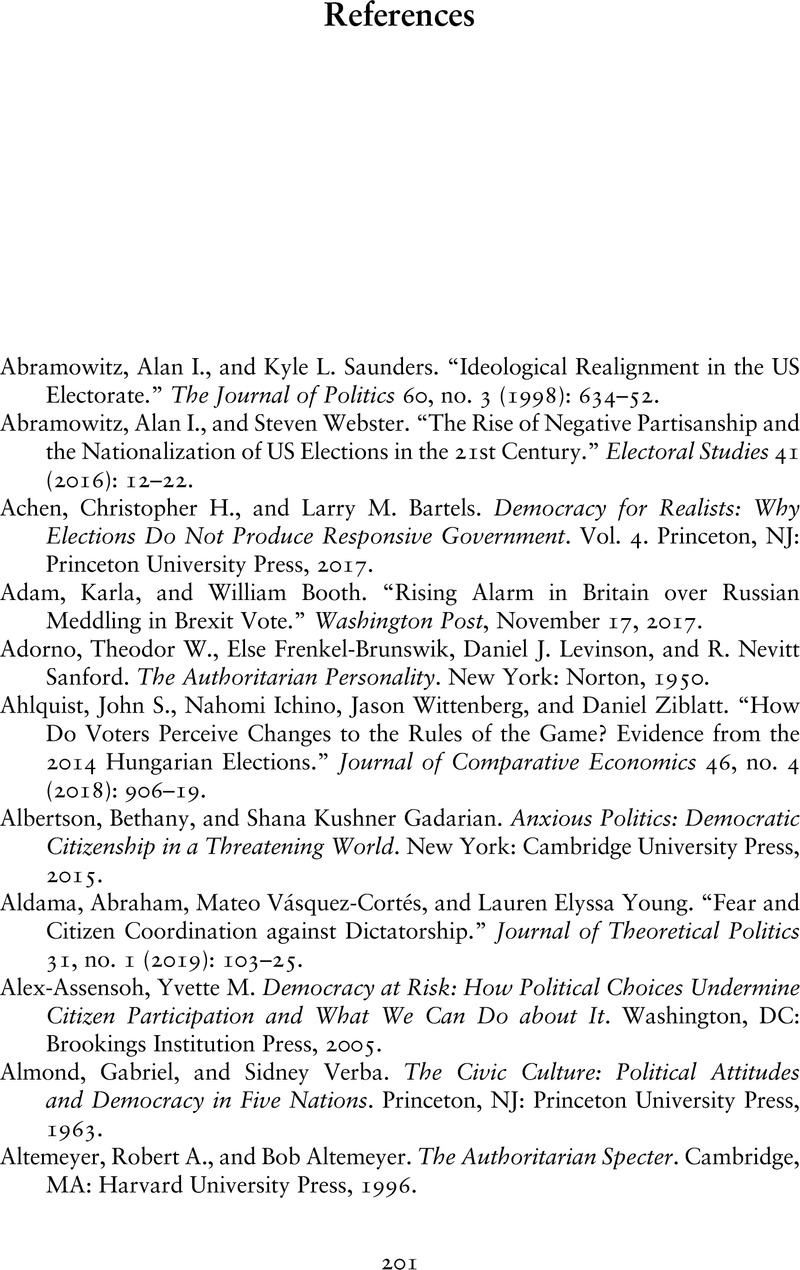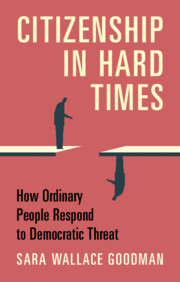Book contents
- Citizenship in Hard Times
- Citizenship in Hard Times
- Copyright page
- Dedication
- Contents
- Figures
- Tables
- Acknowledgments
- 1 Introduction
- 2 Citizenship and Democratic Instability
- 3 Measuring Citizenship Norms
- 4 Patterns of Partisan Citizenship
- 5 The Threat of Polarization
- 6 Foreign Interference in Elections
- 7 Conclusion
- Book part
- References
- Index
- References
References
Published online by Cambridge University Press: 22 January 2022
- Citizenship in Hard Times
- Citizenship in Hard Times
- Copyright page
- Dedication
- Contents
- Figures
- Tables
- Acknowledgments
- 1 Introduction
- 2 Citizenship and Democratic Instability
- 3 Measuring Citizenship Norms
- 4 Patterns of Partisan Citizenship
- 5 The Threat of Polarization
- 6 Foreign Interference in Elections
- 7 Conclusion
- Book part
- References
- Index
- References
Summary

- Type
- Chapter
- Information
- Citizenship in Hard TimesHow Ordinary People Respond to Democratic Threat, pp. 201 - 216Publisher: Cambridge University PressPrint publication year: 2022



